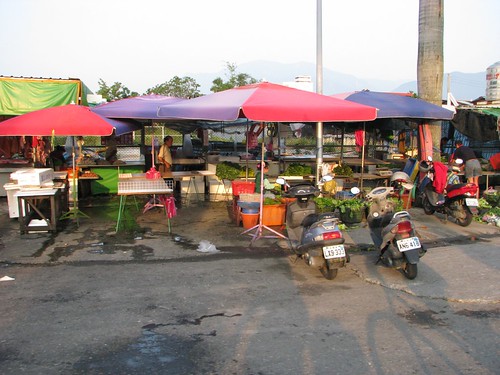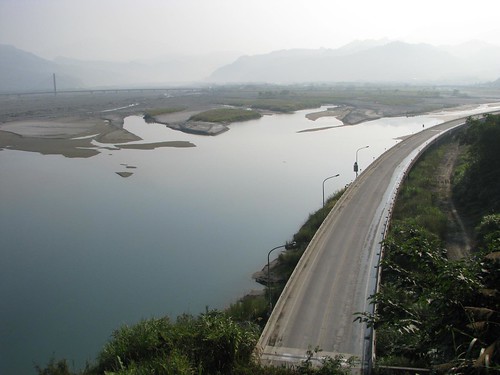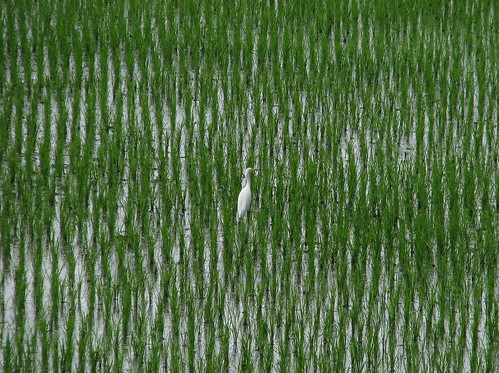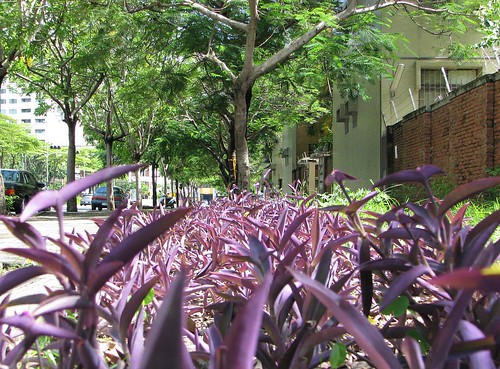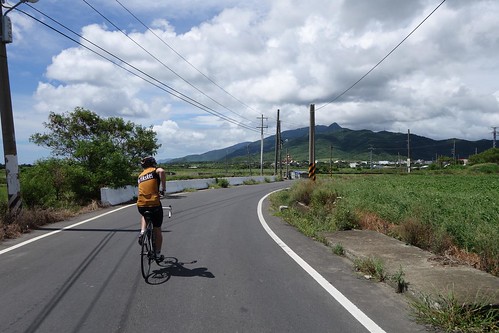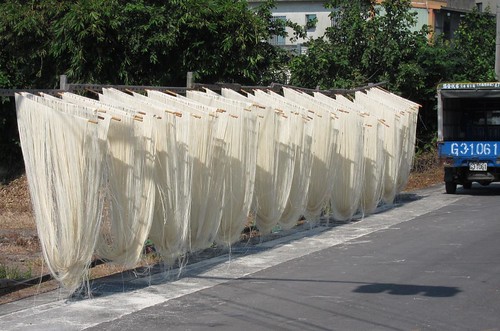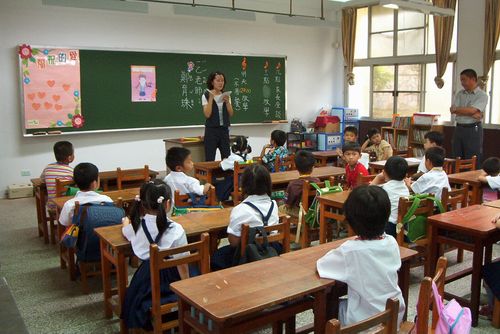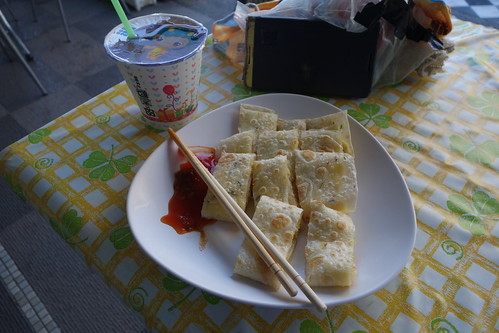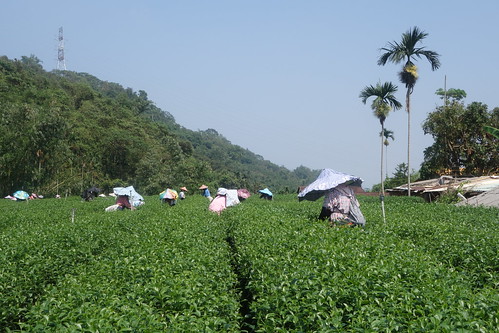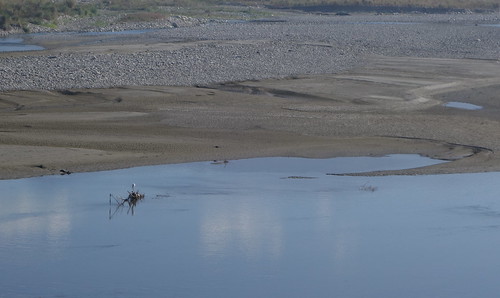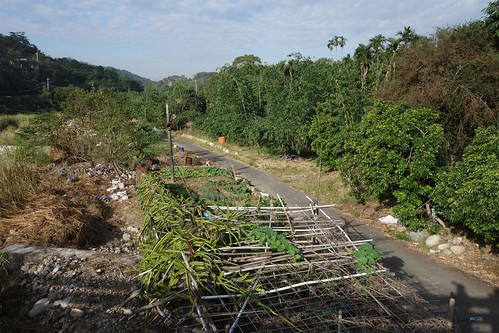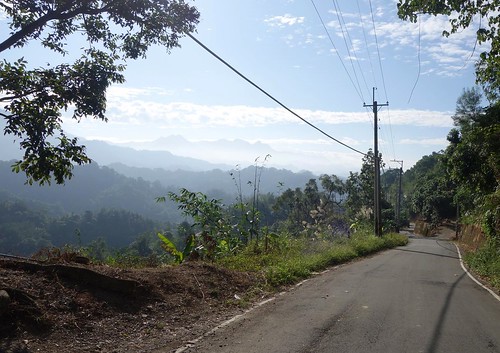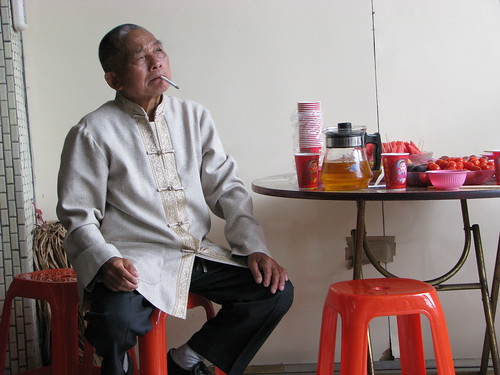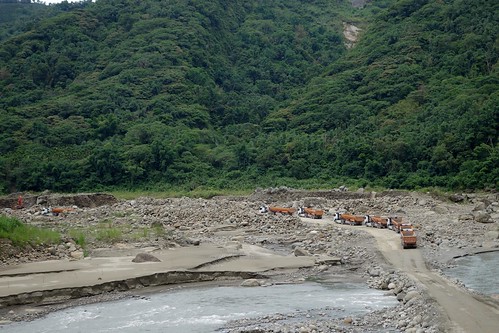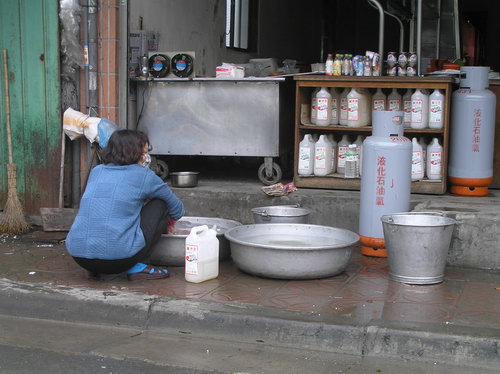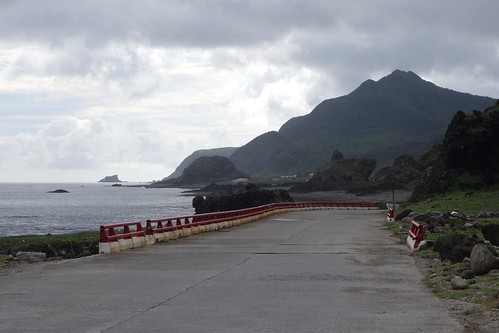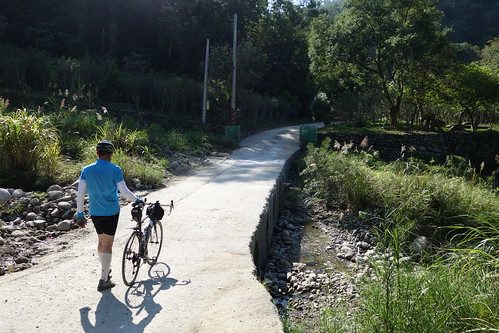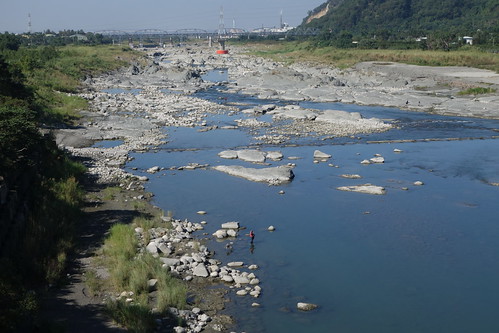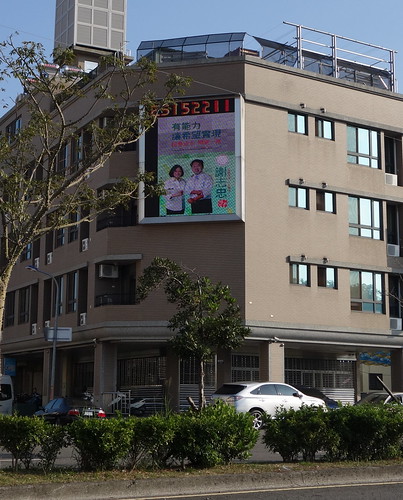Debate time in the marketplace of ideas. I've taken the tweets of Twitter of Gwen Wang, Ben Goren, and Solidarity on the Presidential debate today, which Wang and Solidarity live-tweeted, and Goren commented on, plus a few comments from others. Click on read more to read it from end to beginning....
Pages
▼
Sunday, December 27, 2015
Saturday, December 26, 2015
Polls and other comments
@FormosaNation tweeted some TVBS polls showing Tsai with a strong lead over Chu and most importantly, with leads among independent voters (center image) and in the north (second from bottom), the traditional geographic stronghold of the KMT. Chu's poll numbers are not significantly better than former reactionary KMT candidate Hung Hsiu-chu. Things are so bad that shockingly even Kinmen, long a KMT fief, is in play this election. Solidarity has a great piece on the China Policy Institute blog that discusses the legislative election.
Speaking of Hung, I've been chatting with my students, asking them who their parents are going to vote for. Getting lots of this from students whose parents are longtime Blue voters: "My parents aren't going to vote, they say." While many those will in the end still vote, it looks like some significant number of blue voters are simply going to ride this one out to punish the KMT.
The KMT paid off Miaoli's county's debts (described here) with a $2 billion NT dump of taxpayer cash into the county coffers. The massive debts of Miaoli, created during years of KMT administration, were preventing the government from paying its employees and carrying out the all-important patronage construction projects. Had this been done back in the first few months of the year when this story first started making the national news, then the KMT could legitimately say it was saving the county and taking care of its large Hakka voting base in Miaoli. But at this point, with the election three weeks away, it looks like vote buying with taxpayer money, done only for the sake of the election, and not because the KMT is taking care of its own (Miaoli is traditionally a KMT stronghold). This cynical treatment of its own supporters, exemplified by Vice Presidential candidate Jennifer Wang's speculating on military housing, is one reason the KMT is in so much trouble this election cycle.
The KMT news organ reports that the government is mulling lifting the ban on 830 agricultural items from China...
_______________________
[Taiwan] Don't miss the comments below! And check out my blog and its sidebars for events, links to previous posts and picture posts, and scores of links to other Taiwan blogs and forums!
Speaking of Hung, I've been chatting with my students, asking them who their parents are going to vote for. Getting lots of this from students whose parents are longtime Blue voters: "My parents aren't going to vote, they say." While many those will in the end still vote, it looks like some significant number of blue voters are simply going to ride this one out to punish the KMT.
The KMT paid off Miaoli's county's debts (described here) with a $2 billion NT dump of taxpayer cash into the county coffers. The massive debts of Miaoli, created during years of KMT administration, were preventing the government from paying its employees and carrying out the all-important patronage construction projects. Had this been done back in the first few months of the year when this story first started making the national news, then the KMT could legitimately say it was saving the county and taking care of its large Hakka voting base in Miaoli. But at this point, with the election three weeks away, it looks like vote buying with taxpayer money, done only for the sake of the election, and not because the KMT is taking care of its own (Miaoli is traditionally a KMT stronghold). This cynical treatment of its own supporters, exemplified by Vice Presidential candidate Jennifer Wang's speculating on military housing, is one reason the KMT is in so much trouble this election cycle.
The KMT news organ reports that the government is mulling lifting the ban on 830 agricultural items from China...
According to media reports, Taiwan will consider lifting the ban on the importation of 830 types of agricultural products from the Mainland if the following conditions are met. First, Taiwan does not grow the products and there is great demand for said products. Second, importing such products will not impact the livelihood of Taiwan farmers. Third, importing such products brings concrete benefits.This is a food safety issue which the DPP can capitalize on.
It is believed that products imported from foreign countries, such as chocolate, apples, cherries, avocadoes, grapefruit, rambutan, pear scion, and wheat, may be allowed to be imported from the Mainland. However, Taiwan will not lift the ban on the importation of politically sensitive products, such as rice and peanuts, from the Mainland.
_______________________
[Taiwan] Don't miss the comments below! And check out my blog and its sidebars for events, links to previous posts and picture posts, and scores of links to other Taiwan blogs and forums!
Friday, December 25, 2015
Taiwan independence in class
I assigned my students to present on a social/political issue in Taiwan. One group did Taiwan independence, which I thought was kind of cool. The ready way they selected this, with its suggestion that they did not feel anyone would be offended, shows how things have changed. After READ MORE are the PPTs they made, reproduced with their permission. On the "system of value" when I asked for an example of different values, they said Taiwanese treat each other with more respect than the way Chinese treat each other. The comment about women represents better women's rights in Taiwan. They laid it out in advantages vs disadvantages format, and concluded about what you'd expect for this generation...
Wednesday, December 23, 2015
Hegemonic Warfare Watch: China rolls the border towards Korea
Near Jiji.
DPP Candidate Tsai Ing-wen promises a No Provocations, No Surprises policy with China, but what will Beijing do? The annexation via economic integration proceeds apace, with the Ministry of Economic Affairs promising tofast track carefully scrutinize the deal under which a Chinese firm buys into key Taiwan semiconductor industry firms in the latest example of that...
But then, we may be lucky that China already treats Taiwan as a satrapy of Beijing, so it doesn't mess with the territory. Today news came out that China has told Korea it wants the marine border rolled back 100 kilometers towards Korea...
__________________
Daily Links:
[Taiwan] Don't miss the comments below! And check out my blog and its sidebars for events, links to previous posts and picture posts, and scores of links to other Taiwan blogs and forums!
DPP Candidate Tsai Ing-wen promises a No Provocations, No Surprises policy with China, but what will Beijing do? The annexation via economic integration proceeds apace, with the Ministry of Economic Affairs promising to
But then, we may be lucky that China already treats Taiwan as a satrapy of Beijing, so it doesn't mess with the territory. Today news came out that China has told Korea it wants the marine border rolled back 100 kilometers towards Korea...
During their discussions, the Chinese side proposed that the problem of overlapping exclusive economic zones in the Yellow Sea should be solved by the demarcation line being moved to the east, closer to the Korean coast, on the grounds that China is larger, has a bigger population and a longer coastline than South Korea.I can't imagine what Beijing is thinking, pushing South Korea to make common cause with Taiwan and Japan, especially when it enjoys excellent relations with South Korea.
Under Beijing's proposal, the Ieo sea mount - first charted by the British merchant vessel Socotra in 1900 and initially named Socotra Rock - would fall under Chinese control. The feature is 93 miles from the Korean coast and 178 miles from China.
Seoul's position is that the demarcation line should lie half-way between the two nations' coastlines, as is considered the international norm.
__________________
Daily Links:
- Excellent article from Jon Sullivan in SCMP on the coming election.
- New Wiki article on the Bunun hunter arrested and threatened with prison term for illegal hunting.
- Six shortfalls in Taiwan businesses.
- Children in remote areas have lots of unsupervised time...
- Tsai reassures business leaders on energy issues...Tsai was criticized by the third parties and labor groups for meeting with business leaders.
- Peter Enav on the US, Taiwan, and the Muslim hysteria in the US at Thinking Taiwan.
[Taiwan] Don't miss the comments below! And check out my blog and its sidebars for events, links to previous posts and picture posts, and scores of links to other Taiwan blogs and forums!
Global Warming linked to bird species changes in Taiwan
From: Species turnover in tropical montane forest avifauna links to climatic correlates
Chi-Feng Tsaia, Ya-Fu Leea, Yun-Hsiu Chenb, Wei-Ming Chena, Yen-Min Kuoa, Global Ecology and Conservation, Volume 3, January 2015, Pages 541–552
_______________________
[Taiwan] Don't miss the comments below! And check out my blog and its sidebars for events, links to previous posts and picture posts, and scores of links to other Taiwan blogs and forums!
Chi-Feng Tsaia, Ya-Fu Leea, Yun-Hsiu Chenb, Wei-Ming Chena, Yen-Min Kuoa, Global Ecology and Conservation, Volume 3, January 2015, Pages 541–552
We evidenced a 37.9% of richness attrition and a discrepancy of compositions by 30.2% from historical records dated roughly a quarter century ago, and an increased homogeneity in the mid-elevation LEF forest avifauna. These translated to a species turnover rate of 2.2% per year. In addition, greater change appeared to occur to resident species of lower or narrower elevation distribution. Our study sites were within a preserved and managed area where no habitat alterations from direct human activity were noted (TFRI data). Over the two survey periods and compared to that before 1987, however, local and island-wide weather patterns revealed growing levels of temperature fluctuation, extreme temperatures, enhanced temperature differences, and increasing counts of extreme typhoon events. These lines of evidence suggest a link of the species turnover with even recent climate change, and call for conservation concerns. To our best knowledge, this is the first document reporting the possible impact of climate change on the diversity and composition of avifauna in East-Asian tropical montane forests (Harris et al., 2011).
.....
Temperature is a major environmental factor driving range shifts and species turnover in avian assemblages across gradients (Buckley and Jetz, 2008, also reviewed in Parmesan, 2006). The mean temperatures have risen 0.6 °C in mountains, and nearly 1°C island-wide, over the past century in Taiwan (TCCIP, 2011), which are equivalent to or even greater than global averages (ca. 0.85 °C; IPCC, 2013). An increase of mean maximum temperature in the LEF accords with the trend of an increasing length of heat wave (greater than 28 °C) and a shortened cold spell (less than 10 °C) by 19 days over Taiwan since 1950 (Shiu et al., 2009). Energetics and water budget are main constraints that directly limit the distribution of organisms and their ability to persist extreme weather or environments (Root, 1988). The enhanced annual differences between the mean maximum and minimum temperatures characterize heating summers and colder winters, both expose birds to thermal stress and danger of mortality (McKechnie and Wolf, 2010). Gardner et al. (2011) further proposed body-size shift as the third response to warming in addition to distribution ranges and phenology, which requires not only extensive studies on individual species but also thorough phylogenetic analysis.
_______________________
[Taiwan] Don't miss the comments below! And check out my blog and its sidebars for events, links to previous posts and picture posts, and scores of links to other Taiwan blogs and forums!
Tuesday, December 22, 2015
On the China Policy Institute blog...
Taipei.
Two things you should read today. First the awesome Courtney Donovan Smith and myself are on the CPI blog to provoke you with 7 Predictions for Tsai's first term. Also read this excellent Commonwealth piece on the human cost of Taiwan's labor migration to China -- its deeply saddening (the translators they use are top-notch. Kudos to them).
_______________________
[Taiwan] Don't miss the comments below! And check out my blog and its sidebars for events, links to previous posts and picture posts, and scores of links to other Taiwan blogs and forums!
Two things you should read today. First the awesome Courtney Donovan Smith and myself are on the CPI blog to provoke you with 7 Predictions for Tsai's first term. Also read this excellent Commonwealth piece on the human cost of Taiwan's labor migration to China -- its deeply saddening (the translators they use are top-notch. Kudos to them).
_______________________
[Taiwan] Don't miss the comments below! And check out my blog and its sidebars for events, links to previous posts and picture posts, and scores of links to other Taiwan blogs and forums!
The Nelson Report replies to Rupert Hammond-Chambers + Remarks on Tsai-Japan relationship
Riding in Pingtung.
The Nelson Report replies to Rupert Hammond-Chambers (original post here). This debate is going to take on new life with the new administrations in both the US and Taiwan, and the rapidly changing strategic picture in East and SE Asia.
THE TAIWAN ARMS DISCUSSION... Friday's Report contained a long note from Loyal Reader Rupert Hammond-Chambers, chief of the US-Taiwan Business Council here, which we were happy to run as "equal time" to our own comments earlier in the week.
Because he made so many important points, we discussed it with informed colleagues, and do feel the need to add some points to what Rupert strongly objected to in our original note.
First, until and unless the situation is rectified by the new Legislative Yuan, as a practical matter the Taiwan military is out of money. They are reducing the number of their forces. That being the case, the Ministry of National Defense (MND) is in absorption-mode, not acquisition-mode at the moment.
How many Letters of Requests (LOR) did Taiwan submit in 2012-2013 after the 2011 notification? Nobody in the USG turns away LORs, this is a charge that many accept but which is disproven by the facts.
Also, Taiwan does not submit requests on a regular basis either, we are reliably informed...but here's where the misunderstanding may arise: You may remember the press articles last March about Taiwan "wanting" to buy MH-60R helicopters. An informed USG official responds:
"If you want something, submit the LOR to AIT and DSCA so the USG can start the lengthy process make the decision whether or not to sell it. Giving an interview to Defense News does not qualify as asking the USG. The USG can't include something in a notification package if the Taiwans do not request it."
Further, as a practical matter, it was argued, "requesting" via the media puts the USG is the uncomfortable position of pressuring Taiwan to submit LORs to "prove" to Congress that the Administration isn't dragging its feet... only to have Taipei come back and say they don't want to buy it, or they want only a small number.
An example: no one has pointed out that Taiwan was authorized four Perry Class Frigates in the new legislation, but DOD only notified two? Did the Obama Administration exercise restraint and withhold two because of a fear of China, as some may charge? Our sources say absolutely not, and that Taiwan only wants two.
No debate there are definitely problems aligning Taiwan budget cycles with US decision-cycles, but that is not the crux of the problem. And yes, some in this (and every) administration are probably overly cautious about PRC reactions.
Two final points, we should note that Rupert seems to be recommending "something new" being sold every few months. That is not threat based planning.
And finally, this...as a very junior staff participant in drafting the Taiwan Relations Act, we would gently remind everyone that it isn't true, as is now usually claimed, that the TRA "requires the US to sell arms to Taiwan". Read the language again...
What's required is that the Administration consult with Congress on a regular basis to determine what the situation is, and what arms Taiwan may need.
Also, an acquaintance passed this along...
[Taiwan] Don't miss the comments below! And check out my blog and its sidebars for events, links to previous posts and picture posts, and scores of links to other Taiwan blogs and forums!
The Nelson Report replies to Rupert Hammond-Chambers (original post here). This debate is going to take on new life with the new administrations in both the US and Taiwan, and the rapidly changing strategic picture in East and SE Asia.
++++++++++++++
THE TAIWAN ARMS DISCUSSION... Friday's Report contained a long note from Loyal Reader Rupert Hammond-Chambers, chief of the US-Taiwan Business Council here, which we were happy to run as "equal time" to our own comments earlier in the week.
Because he made so many important points, we discussed it with informed colleagues, and do feel the need to add some points to what Rupert strongly objected to in our original note.
First, until and unless the situation is rectified by the new Legislative Yuan, as a practical matter the Taiwan military is out of money. They are reducing the number of their forces. That being the case, the Ministry of National Defense (MND) is in absorption-mode, not acquisition-mode at the moment.
How many Letters of Requests (LOR) did Taiwan submit in 2012-2013 after the 2011 notification? Nobody in the USG turns away LORs, this is a charge that many accept but which is disproven by the facts.
Also, Taiwan does not submit requests on a regular basis either, we are reliably informed...but here's where the misunderstanding may arise: You may remember the press articles last March about Taiwan "wanting" to buy MH-60R helicopters. An informed USG official responds:
"If you want something, submit the LOR to AIT and DSCA so the USG can start the lengthy process make the decision whether or not to sell it. Giving an interview to Defense News does not qualify as asking the USG. The USG can't include something in a notification package if the Taiwans do not request it."
Further, as a practical matter, it was argued, "requesting" via the media puts the USG is the uncomfortable position of pressuring Taiwan to submit LORs to "prove" to Congress that the Administration isn't dragging its feet... only to have Taipei come back and say they don't want to buy it, or they want only a small number.
An example: no one has pointed out that Taiwan was authorized four Perry Class Frigates in the new legislation, but DOD only notified two? Did the Obama Administration exercise restraint and withhold two because of a fear of China, as some may charge? Our sources say absolutely not, and that Taiwan only wants two.
No debate there are definitely problems aligning Taiwan budget cycles with US decision-cycles, but that is not the crux of the problem. And yes, some in this (and every) administration are probably overly cautious about PRC reactions.
Two final points, we should note that Rupert seems to be recommending "something new" being sold every few months. That is not threat based planning.
And finally, this...as a very junior staff participant in drafting the Taiwan Relations Act, we would gently remind everyone that it isn't true, as is now usually claimed, that the TRA "requires the US to sell arms to Taiwan". Read the language again...
What's required is that the Administration consult with Congress on a regular basis to determine what the situation is, and what arms Taiwan may need.
Also, an acquaintance passed this along...
I went to a seminar on " Is Japan Really Back ?" at Columbia University this afternoon. It was a special program honoring the retirement of Gerald L. Curtis after his 47 years of teaching at Columbia._______________________
The seminar was more on military and security and less on economics. But, it was fairly informative. Most panelists are Curtis' former graduate students of Curtis, now on the faculty in universities from all over the world.
One interesting question was asked about Taiwan at the end. The session chair, a Columbia alum and a former graduate student of Curtis did disclaim that what he said in the seminar was his own, and not reflected the US government.
However, I think it was very rare for an incumbent State Department officer to say that bluntly on the relationship between two other nations.
" Taiwan is a chip for Abe. The DPP will win the presidential election and Taiwan will be closer to Japan after 2016.
Tsai Ing -Wen had a " secret meeting " with Abe ( with his hands to show the quote) in her trip to Japan, and they are good friends.
Abe could hold Taiwan in his pocket as his leverage for Japan's economic and security interests, and Beijing knows well about it".
[Taiwan] Don't miss the comments below! And check out my blog and its sidebars for events, links to previous posts and picture posts, and scores of links to other Taiwan blogs and forums!
Envelopes for sending in reports of Vote Buying.
Local court sent these envelopes around to report vote buying.
_______________________
[Taiwan] Don't miss the comments below! And check out my blog and its sidebars for events, links to previous posts and picture posts, and scores of links to other Taiwan blogs and forums!
_______________________
[Taiwan] Don't miss the comments below! And check out my blog and its sidebars for events, links to previous posts and picture posts, and scores of links to other Taiwan blogs and forums!
Monday, December 21, 2015
Could the Deep Blues stay home?
Food in Taiwan is manufactured under the most stringent sanitary conditions.
Solidarity translated this piece from Wealth Magazine on the KMT's problem with its Deep Blue supporters. The heart of it notes its trouble with the Huang Fu-hsiung (the old soldiers)...
One of the deals the KMT made in running Taiwan as a colonial fief was with the veterans, the "mainlanders" who came over with the KMT in '49. They would remain loyal to the party, send their sons and daughters to serve in the bureaucracy, military, police, and NGOs, and in turn, the KMT elites would supply them with ample pensions, cheap food, and other items extracted from the productive Taiwanese business and agricultural sector. This cocoon of "ethnic" privilege, which the Old Soldiers justify to themselves with an elaborate narrative of how they are victims (perfectly true, just incomplete), has been perturbed in recent years.
All of this has been upset by several developments. The Ma Administration not only messed with their pensions, it also reformed the government, eliminated some agencies and folding the people into other agencies. The result has been widespread anger in the bureaucracy at the Ma Administration -- and the bureaucracy is 1/3 mainlander, whereas the nation itself is less than 10% mainlander. The cuts in military pensions triggered massive protests against the President's plan from the retired veterans. The pension cuts and tax reforms also affected another longtime disproportionately mainlander group: teachers. Then to add insult to injury, as the piece above notes, Vice Presidential Candidate Jennifer Wang was speculating in military housing, essentially preying on her own supporters.
Another factor in Deep Blue unrest is their own mortality. Their children are emigrating or joining the Taiwanese majority and identifying as Taiwanese. They do not identify as mainlander. The next generation of self-identified Chinese in Taiwan is going to be miniscule.
Could they stay home? In 2004 ~600,000 blue votes disappeared (numbers are here). Several factors, including multiple parties, disillusionment with the system, disgust with the KMT's inability to win, splits in the Blue camp, and so on, are appearing in different forms in this election...
________________
Daily Links:
[Taiwan] Don't miss the comments below! And check out my blog and its sidebars for events, links to previous posts and picture posts, and scores of links to other Taiwan blogs and forums!
Solidarity translated this piece from Wealth Magazine on the KMT's problem with its Deep Blue supporters. The heart of it notes its trouble with the Huang Fu-hsiung (the old soldiers)...
The cold reception of the Huang Fu-hsing was no surprise. A knowledgeable source says that it all started when the Ma administration sharply cut year-end pension bonuses for military and civil servants and reformed away the 18%-interest system. After the Hung Chung-chiu (洪仲丘) case it abolished military courts. Then came social movements like the Sunflower Movement and the protests against the fourth nuclear power plant and high school curriculum revisions. The KMT appeared to them to be led by the nose by the green camp, and to be firing on its own troops again and again. It was seen as unable to protect its family’s rights and interests. This made deep blues cold and dissatisfied.The piece notes that replacing Hung Hsiu-chu, the outspoken, ultraconservative presidential candidate, with Eric Chu was deeply unpopular with the military veterans. The Deep Blues are also angered that Wang Jin-pyng heads the list of legislators to get at-large seats.
....
In a surprise twist, Chu then chose former labor minister Jennifer Wang as his running mate, and the green camp revealed she had speculated in military housing units. The military and civil servant networks again caught fire. The hot anger of the deep blues has turned regions where the KMT typically has a strong advantage because of the military communities—like Taipei, New Taipei, Keelung, and Taoyuan—into danger zones, influencing the legislative races.
One of the deals the KMT made in running Taiwan as a colonial fief was with the veterans, the "mainlanders" who came over with the KMT in '49. They would remain loyal to the party, send their sons and daughters to serve in the bureaucracy, military, police, and NGOs, and in turn, the KMT elites would supply them with ample pensions, cheap food, and other items extracted from the productive Taiwanese business and agricultural sector. This cocoon of "ethnic" privilege, which the Old Soldiers justify to themselves with an elaborate narrative of how they are victims (perfectly true, just incomplete), has been perturbed in recent years.
All of this has been upset by several developments. The Ma Administration not only messed with their pensions, it also reformed the government, eliminated some agencies and folding the people into other agencies. The result has been widespread anger in the bureaucracy at the Ma Administration -- and the bureaucracy is 1/3 mainlander, whereas the nation itself is less than 10% mainlander. The cuts in military pensions triggered massive protests against the President's plan from the retired veterans. The pension cuts and tax reforms also affected another longtime disproportionately mainlander group: teachers. Then to add insult to injury, as the piece above notes, Vice Presidential Candidate Jennifer Wang was speculating in military housing, essentially preying on her own supporters.
Another factor in Deep Blue unrest is their own mortality. Their children are emigrating or joining the Taiwanese majority and identifying as Taiwanese. They do not identify as mainlander. The next generation of self-identified Chinese in Taiwan is going to be miniscule.
Could they stay home? In 2004 ~600,000 blue votes disappeared (numbers are here). Several factors, including multiple parties, disillusionment with the system, disgust with the KMT's inability to win, splits in the Blue camp, and so on, are appearing in different forms in this election...
________________
Daily Links:
- In advance of the anticipated party asset laws if the DPP wins the legislature, KMT assets are flying out the door. Explain again why a political party needs a hotel in Pulau.
- Legislature passes right to end life laws
- Malaysians protest against Chinese intrusions in Malaysian waters. This pattern of intrude-and-depart is a common Chinese tactic seen in the East China Sea and also in the Himal. I wonder when/if it will be deployed against Taiwan...
- Good Bloomberg piece on Chinese attacks on the DPP.
- DPP proposes ban on Chinese investment in Taiwan's semiconductor industry
- Finally, the number of new cases of Dengue is dropping in Tainan.
- Yawn. Another "the DPP will sink trade with China" piece.
- Low salaries killing economic growth. No shit. That's what happens when the government focuses on transferring wealth to the rich instead of building the nation.
- An Economist Editor says this piece, free of concrete ideas on any big ticket item, represents the work of the "only commentator in English who writes about the big picture" in Taiwan (see the comments). No, seriously. Now you know why The Economist is so wildly behind the curve on Taiwan...
[Taiwan] Don't miss the comments below! And check out my blog and its sidebars for events, links to previous posts and picture posts, and scores of links to other Taiwan blogs and forums!
Saturday, December 19, 2015
Rupert Hammond Chambers excellently responds to criticisms of the Taiwan Arms Deal
Interior of a Buddhist temple near my house.
This is from The Nelson Report of 12/18. Note the last paragraph, which makes the same argument that I always do: "tension" is how Beijing manages the Washington-Taipei relationship and the Washington-Beijing relationship. The international media, which reports constantly on "tension" but never describes its political function, serves Beijing in that way. This form of soft power, in which Beijing's claims about its own history or tension or its behavior are presented without analysis or comment in the international media -- sometimes even as the basis of analysis and comment, is one of China's most important forms of soft power.
If you're reading this Rupert, many thanks for this response.
Loyal Reader Rupert Hammond-Chambers, US-Taiwan Business Council, begs to differ with our coverage of the Taiwan arms sale package:
Chris,
At moments when equities that directly impact the Council come up I am particularly attune to what's reported.
There are a significant number of people who share the concerns the Council sent out yesterday in our press release who know the "actual facts". Congressional staffers and leadership at SFRC, SASC and HFRC, the USTBC represents every company involved in every transaction and has had insight into both the programs and the process. We disagree with your presentation of the administration's position.
In response:
- Not ready to integrate what? This arms package? This is second hand gear which they already own and munitions which they already have in inventory. There is no integration issues surrounding this package. If the "it" is new capabilities that would speak to a priority list with consideration of new items but there has been no such review nor any interest in consideration of new capabilities. They are rebuffed before LoRs can be submitted.
- Taiwan has requested items and been rebuffed consistently. The F-16 C/Ds are the most public and recognized example. Not only were their LoRs rebuffed they were instructed not to submit LoRs without permission. The Obama Administration could then claim that Taiwan made no requests. It's fantastically disingenuous. It's good tactics if you want to kill programs at the door. This was the lesson of the F-16 A/B fight with congress. Keep programs out of the system and you won't be pressured to complete sales which in turn may disrupt China military-to-military engagement or climate change conferences in Paris.
- In 2009, the Legislative Yuan budgeted US$500M to purchase F-16s. the US rebuffed their LoRs. The LY budgeted this money because the Bush Administration had rightly accused Taipei of not putting its money where its mouth was after 3+ years of KMT blocking the defense budget. That US$500M could have been used for other defense priorities but when allocated to a specific program that doesn't come to fruition it is returned to the general treasury unused. The LY cannot budget for programs when the US keeps the LoR door shut. The Taiwan budget process and commitment starts when Taiwan brings a program to the US which accepts an LoR. Taiwan then budgets the funds with some surety that the program would go to the US congress in a specific year. Our process is broken. LoRs are refused. Programs are placed on indefinite hold to gauge when to thread the China schedule needle. How can Taiwan possibly budget when our willingness to engage is so erratic. When programs are held for years without notification.
The argument for replacement fighter's you cite is an old crucible that fails when applied to the many more likely scenarios involving crisis in the Taiwan Strait other than China launching everything it has at Taiwan. Wouldn't China want to keep some of its powder dry or direct its forces at the US, Japan and possibly Korea? Is an all-out attack the most likely action by China? Taiwan has a quantitative problem for its fighters with the number of available F-16s to patrol Taiwan airspace falling to almost 70 at present operational rates when the upgrade program kicks in in '17. These planes will experience further wear and tear as they have to be used more in the absence of additional fighters. The most disturbing part of your argument is where it logically ends, with Taiwan fielding no air-force if we're unprepared to replenish its fleet. China's missiles threaten Korea and Japan equally, are you arguing that they too should eventually have no air force? Should we withdraw all our planes from Okinawa because it is similarly threatened? Of course not, Japan and Korea have a right to field a robust air defense to address all scenarios. We have a right to forward deploy our equipment. Your argument is a canard.
On the submarines, the key part of the quote is "Taiwan has a design". In 2001 we committed to assist Taiwan in procuring submarines. In 2003 and again in 2007 the U.S. prepared a design phase to support Taiwan procurement of submarines. The Obama Administration is balking at helping Taiwan secure a design whether through an FMS design phase, such as the Taiwan submarine CN program that is sitting at the Department of State right now or supporting Taiwan's efforts to secure a design from Europe or Japan. This isn't Taiwan failing to act, this is the US balking at fulfilling an obligation because of the political ramifications of support. Submarines would hugely complicate PRC invasion scenarios. The Obama administration could have included the CN sitting at state on subs and partnered in securing a design. The Obama administration chose not to.
The argument that it's all small things, such as this package, or all something else such as F-16s and subs is false. What we sell Taiwan should be driven by a threat assessment. Nothing should be taken off the table to begin with. We should be focused on any platform or system that complicates PRC intentions. We haven't undertaken a proper assessment in over a decade and 2001 was the last time such an assessment drove a serious look at capabilities with new commitments. This package was driven by politics, the politics of US-China relations. This is about the minimum necessary to comply with the TRA while avoiding any disruption to bilateral relations with Beijing.
The biggest straw man in US-Taiwan defense relations is the argument that constituencies in this debate are proposing parity or "overcoming the spending gap". No one is arguing that. Should Taiwan spend more than 2% of GDP? Absolutely. However, this is about Taiwan having access to a range of capabilities that may complicate the myriad scenarios Beijing will consider not just an all-out attack with everything fired at Taiwan which is the scenario presented to kill any discussion of politically sensitive solutions. Again, we shouldn't be negotiating with ourselves by removing platforms and systems that would make a difference because the political lift is hard.
Yes, equipment is being delivered now. This Four year gap, 2011 - 2015, in arms sales will result in a four year gap in deployment of new capabilities that should be being sold now. It's not a stop start process but one that should be addressed year-on-year. You don't just catch up when a sale is made it takes serious lead time to assess, process, buy and deploy these systems. What was sold in '08 and 2010 is being delivered now. What will be delivered in 2020? Nothing. The timeout taken these past 4+ years will have a serious impact on Taiwan in the coming years, a mess the next US president may well be cleaning up.
Rather than Taiwan forces filling the gap created by this 4+ year delay it'll be our forces doing it. Personally, I'd rather have Taiwan personnel defending Taiwan.
Finally, now Taiwan's military is a guerrilla force?
Why was the package delayed four years. How does this package adequately address the changes in the PRC threat over that period?
Why isn't the administration using the regular FMS process to assess, on an ongoing basis, Taiwan requests? Is packaging arms sales the right approach?
The PRC looms like an 800 pound gorilla over this entire broken process. In one place their threat to Taiwan grows daily in another the US refuses to respond to that threat in a meaningful way for fear of upsetting the aggressor. It's genius.
Rupert
_______________________
[Taiwan] Don't miss the comments below! And check out my blog and its sidebars for events, links to previous posts and picture posts, and scores of links to other Taiwan blogs and forums!
This is from The Nelson Report of 12/18. Note the last paragraph, which makes the same argument that I always do: "tension" is how Beijing manages the Washington-Taipei relationship and the Washington-Beijing relationship. The international media, which reports constantly on "tension" but never describes its political function, serves Beijing in that way. This form of soft power, in which Beijing's claims about its own history or tension or its behavior are presented without analysis or comment in the international media -- sometimes even as the basis of analysis and comment, is one of China's most important forms of soft power.
If you're reading this Rupert, many thanks for this response.
++++++++++++++
Loyal Reader Rupert Hammond-Chambers, US-Taiwan Business Council, begs to differ with our coverage of the Taiwan arms sale package:
Chris,
At moments when equities that directly impact the Council come up I am particularly attune to what's reported.
There are a significant number of people who share the concerns the Council sent out yesterday in our press release who know the "actual facts". Congressional staffers and leadership at SFRC, SASC and HFRC, the USTBC represents every company involved in every transaction and has had insight into both the programs and the process. We disagree with your presentation of the administration's position.
In response:
- Not ready to integrate what? This arms package? This is second hand gear which they already own and munitions which they already have in inventory. There is no integration issues surrounding this package. If the "it" is new capabilities that would speak to a priority list with consideration of new items but there has been no such review nor any interest in consideration of new capabilities. They are rebuffed before LoRs can be submitted.
- Taiwan has requested items and been rebuffed consistently. The F-16 C/Ds are the most public and recognized example. Not only were their LoRs rebuffed they were instructed not to submit LoRs without permission. The Obama Administration could then claim that Taiwan made no requests. It's fantastically disingenuous. It's good tactics if you want to kill programs at the door. This was the lesson of the F-16 A/B fight with congress. Keep programs out of the system and you won't be pressured to complete sales which in turn may disrupt China military-to-military engagement or climate change conferences in Paris.
- In 2009, the Legislative Yuan budgeted US$500M to purchase F-16s. the US rebuffed their LoRs. The LY budgeted this money because the Bush Administration had rightly accused Taipei of not putting its money where its mouth was after 3+ years of KMT blocking the defense budget. That US$500M could have been used for other defense priorities but when allocated to a specific program that doesn't come to fruition it is returned to the general treasury unused. The LY cannot budget for programs when the US keeps the LoR door shut. The Taiwan budget process and commitment starts when Taiwan brings a program to the US which accepts an LoR. Taiwan then budgets the funds with some surety that the program would go to the US congress in a specific year. Our process is broken. LoRs are refused. Programs are placed on indefinite hold to gauge when to thread the China schedule needle. How can Taiwan possibly budget when our willingness to engage is so erratic. When programs are held for years without notification.
The argument for replacement fighter's you cite is an old crucible that fails when applied to the many more likely scenarios involving crisis in the Taiwan Strait other than China launching everything it has at Taiwan. Wouldn't China want to keep some of its powder dry or direct its forces at the US, Japan and possibly Korea? Is an all-out attack the most likely action by China? Taiwan has a quantitative problem for its fighters with the number of available F-16s to patrol Taiwan airspace falling to almost 70 at present operational rates when the upgrade program kicks in in '17. These planes will experience further wear and tear as they have to be used more in the absence of additional fighters. The most disturbing part of your argument is where it logically ends, with Taiwan fielding no air-force if we're unprepared to replenish its fleet. China's missiles threaten Korea and Japan equally, are you arguing that they too should eventually have no air force? Should we withdraw all our planes from Okinawa because it is similarly threatened? Of course not, Japan and Korea have a right to field a robust air defense to address all scenarios. We have a right to forward deploy our equipment. Your argument is a canard.
On the submarines, the key part of the quote is "Taiwan has a design". In 2001 we committed to assist Taiwan in procuring submarines. In 2003 and again in 2007 the U.S. prepared a design phase to support Taiwan procurement of submarines. The Obama Administration is balking at helping Taiwan secure a design whether through an FMS design phase, such as the Taiwan submarine CN program that is sitting at the Department of State right now or supporting Taiwan's efforts to secure a design from Europe or Japan. This isn't Taiwan failing to act, this is the US balking at fulfilling an obligation because of the political ramifications of support. Submarines would hugely complicate PRC invasion scenarios. The Obama administration could have included the CN sitting at state on subs and partnered in securing a design. The Obama administration chose not to.
The argument that it's all small things, such as this package, or all something else such as F-16s and subs is false. What we sell Taiwan should be driven by a threat assessment. Nothing should be taken off the table to begin with. We should be focused on any platform or system that complicates PRC intentions. We haven't undertaken a proper assessment in over a decade and 2001 was the last time such an assessment drove a serious look at capabilities with new commitments. This package was driven by politics, the politics of US-China relations. This is about the minimum necessary to comply with the TRA while avoiding any disruption to bilateral relations with Beijing.
The biggest straw man in US-Taiwan defense relations is the argument that constituencies in this debate are proposing parity or "overcoming the spending gap". No one is arguing that. Should Taiwan spend more than 2% of GDP? Absolutely. However, this is about Taiwan having access to a range of capabilities that may complicate the myriad scenarios Beijing will consider not just an all-out attack with everything fired at Taiwan which is the scenario presented to kill any discussion of politically sensitive solutions. Again, we shouldn't be negotiating with ourselves by removing platforms and systems that would make a difference because the political lift is hard.
Yes, equipment is being delivered now. This Four year gap, 2011 - 2015, in arms sales will result in a four year gap in deployment of new capabilities that should be being sold now. It's not a stop start process but one that should be addressed year-on-year. You don't just catch up when a sale is made it takes serious lead time to assess, process, buy and deploy these systems. What was sold in '08 and 2010 is being delivered now. What will be delivered in 2020? Nothing. The timeout taken these past 4+ years will have a serious impact on Taiwan in the coming years, a mess the next US president may well be cleaning up.
Rather than Taiwan forces filling the gap created by this 4+ year delay it'll be our forces doing it. Personally, I'd rather have Taiwan personnel defending Taiwan.
Finally, now Taiwan's military is a guerrilla force?
Why was the package delayed four years. How does this package adequately address the changes in the PRC threat over that period?
Why isn't the administration using the regular FMS process to assess, on an ongoing basis, Taiwan requests? Is packaging arms sales the right approach?
The PRC looms like an 800 pound gorilla over this entire broken process. In one place their threat to Taiwan grows daily in another the US refuses to respond to that threat in a meaningful way for fear of upsetting the aggressor. It's genius.
Rupert
_______________________
[Taiwan] Don't miss the comments below! And check out my blog and its sidebars for events, links to previous posts and picture posts, and scores of links to other Taiwan blogs and forums!
Richard Bush on the Sunflowers
A teacher prepares an elementary school class for an outing.
Longtime US government Taiwan expert Richard Bush's latest paper from Brookings is insightful, informed, knowledgeable and well written: perfect for 2007. I'm not going to bother to fisk the whole thing, since it constructs understandings and assumptions about the future and the strategic situation that are out of date, but one claim in this paper caught my eye:
First, the issue was not Ma's China policy (however construed) but the Services Pact and Taiwan's democracy. The Sunflowers opposed the Services Pact and the undemocratic way the KMT attempted to slip it through the legislature. They were not opposed to China trade and repeatedly said they would welcome a fair trade agreement. Was this position out of whack with the public mind? Heck no. In a Businessweek poll, the pact had 22% support. In this poll from the pro-KMT TVBS the pact has 32% support. The pact never had public support.
Second, what was the real public perspective on the Sunflowers? Well, over 500,000 came out in support of them and the island's democracy in one of the largest protests in the island's history. The pro-KMT TVBS poll above on Letters from Taiwan found that 65% thought the Sunflowers had helped Taiwan's democracy. Similarly, 63% saw the students as protecting Taiwan's democracy in this staidly pro-KMT TISR poll from March of 2014. In that same poll 54% saw the KMT as going against democratic procedures. In this TVBS poll from March 31, 59% supported the student demands (61% supported a public referendum on the Services Pact). This March 24 TVBS poll had 51% support for student occupation of the Legislature, with 38% against, while this March 20th poll from TVBS had 48% supporting the occupation, 40% opposing (support for the students actually rose over time), and just 21% supporting the Services Pact.
Taiwanese have incorporated democracy into the Taiwanese identity; threats to it are dealt with harshly.
What was public support for the Sunflowers? One need only look at subsequent events in which the public had the opportunity to repudiate the Sunflowers at the ballot box. The KMT was crushed in the Nov 2014 election and it is going to be beaten again this January. The public has had ample opportunity to repudiate the Sunflowers; it hasn't. The Services Pact is DOA, and the KMT is heading in that direction.
If the public supports Ma's China policy, why are his approval ratings so low? If Ma's China policy is strongly supported, why is Eric Chu's support as low as Ma's? The answer is simple: Ma's China policy is not popular, and since Eric Chu is basically Ma 2.0, his support tracks Ma's approval ratings.
Of course, Bush's characterization of Ma's China policy as "economic engagement" simply removes the political thrust of Ma's policies from view...
________________
Daily Links:
[Taiwan] Don't miss the comments below! And check out my blog and its sidebars for events, links to previous posts and picture posts, and scores of links to other Taiwan blogs and forums!
Longtime US government Taiwan expert Richard Bush's latest paper from Brookings is insightful, informed, knowledgeable and well written: perfect for 2007. I'm not going to bother to fisk the whole thing, since it constructs understandings and assumptions about the future and the strategic situation that are out of date, but one claim in this paper caught my eye:
The public has apparently preferred the KMT’s approach to China (economic engagement) over that of the DPP, about 55 percent to 45 percent (in a favored Mainland expression, “the Blue camp is larger than the Green camp”). For example, a poll conducted in late February 2014, right before the Sunflower Movement students seized the Legislative Yuan, found that 45.7 percent of those surveyed favored the KMT’s approach to engagement with China, while 31.4 percent preferred the DPP’s (the rest did not know or had no opinion). This result was all the more interesting because the poll was conducted by the DPP and suggested that the Sunflower Movement did not in fact reflect a majority opinion.12Of course, it is basically absurd for anyone to claim, even using weasel words ("suggested"), that the Sunflower Movement "did not in fact reflect a majority opinion", since all polls at the time and since show that it did. You have to work really hard to find this one poll (it's here) that is obviously incompetent, out of all the myriad polls, and then cite it as if no other polls existed at the time or after it (Dave Brown used that poll in his uninformed letter to the Nelson Report on the Sunflowers). This approach is misleading in two ways.
First, the issue was not Ma's China policy (however construed) but the Services Pact and Taiwan's democracy. The Sunflowers opposed the Services Pact and the undemocratic way the KMT attempted to slip it through the legislature. They were not opposed to China trade and repeatedly said they would welcome a fair trade agreement. Was this position out of whack with the public mind? Heck no. In a Businessweek poll, the pact had 22% support. In this poll from the pro-KMT TVBS the pact has 32% support. The pact never had public support.
Second, what was the real public perspective on the Sunflowers? Well, over 500,000 came out in support of them and the island's democracy in one of the largest protests in the island's history. The pro-KMT TVBS poll above on Letters from Taiwan found that 65% thought the Sunflowers had helped Taiwan's democracy. Similarly, 63% saw the students as protecting Taiwan's democracy in this staidly pro-KMT TISR poll from March of 2014. In that same poll 54% saw the KMT as going against democratic procedures. In this TVBS poll from March 31, 59% supported the student demands (61% supported a public referendum on the Services Pact). This March 24 TVBS poll had 51% support for student occupation of the Legislature, with 38% against, while this March 20th poll from TVBS had 48% supporting the occupation, 40% opposing (support for the students actually rose over time), and just 21% supporting the Services Pact.
Taiwanese have incorporated democracy into the Taiwanese identity; threats to it are dealt with harshly.
What was public support for the Sunflowers? One need only look at subsequent events in which the public had the opportunity to repudiate the Sunflowers at the ballot box. The KMT was crushed in the Nov 2014 election and it is going to be beaten again this January. The public has had ample opportunity to repudiate the Sunflowers; it hasn't. The Services Pact is DOA, and the KMT is heading in that direction.
If the public supports Ma's China policy, why are his approval ratings so low? If Ma's China policy is strongly supported, why is Eric Chu's support as low as Ma's? The answer is simple: Ma's China policy is not popular, and since Eric Chu is basically Ma 2.0, his support tracks Ma's approval ratings.
Of course, Bush's characterization of Ma's China policy as "economic engagement" simply removes the political thrust of Ma's policies from view...
________________
Daily Links:
- Julian Baum with excellent piece on Tsai Ing-wen and 2016 Election
- Reuters says Taiwan arms deal isn't quite enough...
- China summons US envoy over the arms deal. They threatened the firms that made deals the last time around in 2011. Nothing happened.
- Michal Thim on the arms deal
- Great piece from Frozen Garlic on the connection between Taiwanese in China and the vote in Taiwan
[Taiwan] Don't miss the comments below! And check out my blog and its sidebars for events, links to previous posts and picture posts, and scores of links to other Taiwan blogs and forums!
Thursday, December 17, 2015
Riding through the 2016 Election
I am posting at the China Policy Institute's Taiwan 2016 blog today: Riding through the 2016 election. Go thou and enjoy!
_______________________
[Taiwan] Don't miss the comments below! And check out my blog and its sidebars for events, links to previous posts and picture posts, and scores of links to other Taiwan blogs and forums!
_______________________
[Taiwan] Don't miss the comments below! And check out my blog and its sidebars for events, links to previous posts and picture posts, and scores of links to other Taiwan blogs and forums!
Tuesday, December 15, 2015
Nelson Report: Remarks on Tsai Ing-wen
Here they are...
+++++++++++++++
CHINA/TAIWAN...the principal reservation the US has had about Tsai Ing-wen, the likely next president of Taiwan come Jan. 16, is that she has not been sufficiently reassuring on the subtleties of cross-Strait tensions, given the unavoidable backdrop of the previous DPP administration under Chen Shui-bian. [MT: Another example of how China's deployment of the idea of "tensions" manages Washington's response to Beijing and to Taipei. Nelson himself is entirely free of this problem, he is merely describing.]
The unfortunate intervention of the NSC back in 2012, you will recall, saw these reservations actually put in writing to then-Financial Times reporter Anna Fifield, now with the Washington Post based in Tokyo.[MT: This is a reference to that incident in which a high ranking Obama Administration official attacked Tsai Ing-wen during the election, deeply harming the US and Taiwan].
SO it was no accident that Dr. Tsai's major US speech during her tour last summer came at CSIS, where she answered veteran policy player Dave Brown's question with her now much-studied declaration not to do anything to upset the status quo...and that includes sticking to the existing Taiwan constitution.
All by way of putting into context Tsai's reaction to a high-profile challenge to the status quo by the KMT government under Pres. Ma, per the official ROC press release:
http://www.moi.gov.tw/english/english_news/news_detail.aspx?type=taiwan&sn=14065
OC Minister of the Interior Chen Wei-zen presides over a ceremony marking the opening of a wharf and lighthouse on Taiping Island...
Here's a Chinese media account of Tsai's comment on this (from China Review ...as a Loyal Reader comments,"ironically our Chinese friends tend to have the most comprehensive quotes"):
DPP presidential candidate Tsai Ing-wen said, we have sovereignty over Taiping Island, but as a member of the region we should cooperate with the region and maintain the regional peace and stability. We also hope to sustain regional cooperation to allow resource sharing and joint development to certain extent. This is our most fundamental approach."
Hummm...pretty sophisticated, we thought. It shows appreciation of both US and Chinese concerns, while reinforcing US policy regionally, and endorsing the resource-share ideas welcomed when raised by Pres. Ma, back during the fisheries agreement with Japan.
(It also reminded us of the response by then-candidate Abe before his first term as PM, when we asked him at a Brookings lunch how he planned to improve Japan-S. Korea relations in view of the historical neuralgia of Takeshima/Dokdo.
Abe's answer, from memory but this is pretty close: "I will never concede on our sovereignty, but I will not challenge S. Korea's control of the island.")
Anyhow...we ran Dr. Tsai by involved Loyal Readers, and heard back from Bob Manning, Atlantic Council, Alan Romberg, Stimson Center, and "anon":
MANNING:
Pretty good answer. Hard to beat. But when you parse it, seems not far from Deng's idea of deferring sovereignty issue and focus on joint development. Still left with every claimant having control over islets they occupy and competing sovereignty claims, but put in deep freeze. [MT: It's completely different than Deng's answer -- Deng wanted the claim 'deferred' because "joint development" was a weaker but still useful form of territorial grab. Tsai doesn't emphasize the South China Sea claims because at bottom they are a Chinese land grab that has nothing to do with Taiwan, and bring them up during an election is stirring up unnecessary controversy.]
ROMBERG:
I agree this was a wise answer. Every indication is that Tsai is very sensitive to the need to try to prevent South China Sea issues from becoming contentious either with Beijing or others. At the same time, she clearly has no intention to abandon the ROC's sovereignty claim.[MT: Both Romberg and Dave Brown above (here) cheer for A Certain Political Party in Taiwan. So Romberg's last sentence could be read as an attempt to stir up the pot by tarring Tsai with the KMT territorial madness.]
ANON FORMER USG...shows that Tsai remains under the microscope:
To All:
I don't disagree but am struck by what she didn't say. In addition to not claiming all of the Spratleys (Taiwan's claim) [MT: excellent observation, and a hint about the DPP's real position], she also didn't say that :
· Territorial claims should be asserted in a peaceful, non-coercive way;
· All disputes should be resolved peacefully and in accordance with international law;
· Freedom of navigation and free flow of commerce and air flights are important.
I suppose all of that might be included in the phrase "regional peace and stability" but she could have earned points by laying it out, including with the US.[MT: Does the commenter really believe that Tsai doesn't want things solved peacefully? She already said this before, in any case, even referring to "freedom of navigation". ]
_______________________
[Taiwan] Don't miss the comments below! And check out my blog and its sidebars for events, links to previous posts and picture posts, and scores of links to other Taiwan blogs and forums!
Monday, December 14, 2015
Monday links
Picky women.
Working on stuff for other sites, so for the moment, enjoy some links. Expect a fun piece out on Wednesday at the China Policy Institute 2016 elections blog!
____________________
Daily Links:
[Taiwan] Don't miss the comments below! And check out my blog and its sidebars for events, links to previous posts and picture posts, and scores of links to other Taiwan blogs and forums!
Working on stuff for other sites, so for the moment, enjoy some links. Expect a fun piece out on Wednesday at the China Policy Institute 2016 elections blog!
____________________
Daily Links:
- Taipei Times with great feature story on Decode, the new political magazine taking the nation by storm.
- Nathan Batto with good piece on party ID in Taiwan: the KMT is crashing.
- Taipei to host global cycling conference
- KMT poll has Tsai ahead of Chu by only 10 points. LOL. Next TV has Tsai over Chu, 41-16.
- Chiayi City to boycott Ting Hsin foods. Unfortunately, that is not justice.
- It is in Chinese, but Hong Kong now has a Democratic Progressive Party modeled after the DPP in Taiwan.
- Taiwan no 1: gamer creates Taiwan pride
- Kharis Templeman forecasts that DPP will win legislature and also has a good post on what the incoming Tsai government needs to do
- Paris climate talks concluded with empty, toothless scam pact.
[Taiwan] Don't miss the comments below! And check out my blog and its sidebars for events, links to previous posts and picture posts, and scores of links to other Taiwan blogs and forums!
Saturday, December 12, 2015
Sugar in the days of Koxinga
From Hui-Wen Lin. On Colonial Industries: the Remnants of Bygone Sugar Factories in Taiwan (International Journal of Social Science and Humanity, Vol. 5, No. 11, November 2015)
When Koxinga came to Taiwan in 1661, Taiwan's sugar industry policies were still much the same as under Dutch rule, and although Koxinga's exiled Chinese regime brought along many Han Chinese immigrants and China's traditional political system, his anti-Qing stance had much the same effect as Holland had on Taiwan's sugar industry. The foreign trade benefits of Taiwan's sugar industry were mostly used to fund his political campaigns to resist the Qing dynasty. However, the majority of Han immigrants and soldiers who helped cultivate lands had a large impact on land development in Taiwan. The Han Chinese also took over the Taiwanese sugar industry from the Dutch, and after becoming the main power in Taiwan, places that produced sugar were referred to as tangbu. Business models for these tangbu were divided into niugua bu (sugar factories operated by 15-40 people and 15-30 oxen), niuben bu (small organizations that covered everything from growing sugar cane to making sugar; as members were few, sugar production could be commissioned or pressed sugar cane could be purchased), gongjia bu (joint stock sugar factories owned by 2-5 people), and toujia bu (factories invested in and established by a single capitalist) [2]. The place names in Taiwan which still contain this bu today are the areas in which sugar was manufactured in the past. Koxinga's political power in Taiwan lasted little longer than two decades, and in 1684, Taiwan became part of the Qing dynasty. Its lands were developed even further, attracting large numbers of immigrants. England, the US, and France soon became part of Taiwan's sugar trade._______________________
[Taiwan] Don't miss the comments below! And check out my blog and its sidebars for events, links to previous posts and picture posts, and scores of links to other Taiwan blogs and forums!
Friday, December 11, 2015
Ma government repays its supporters
Contemplating lunch?
The fearsome concentration of wealth in Taiwan has grown faster than most places....
The resulting housing bubble is devouring Taiwan, but it is also devouring the KMT. Keelung and Taoyuan are both becoming more pan-Green as young people -- overwhelmingly Green -- move out to those areas to find less expensive housing, changing the demographics of once solidly blue areas...
________________
Daily Links:
[Taiwan] Don't miss the comments below! And check out my blog and its sidebars for events, links to previous posts and picture posts, and scores of links to other Taiwan blogs and forums!
The fearsome concentration of wealth in Taiwan has grown faster than most places....
The number of people whose liquid assets are worth US$1 million or more in Taiwan increased 11.8 percent last year to 125,000 — the biggest growth among the four economies known as the Asian Tigers, according to a wealth report published by Aspire Lifestyles.Note that this is occurring as the economy lurches to a halt and income remains stagnant. The Ma Administration has rewarded its 1% supporters with delays and obfuscations on the stock transaction tax (finally imposed this year), the real estate assessment, capital gains tax, and other policies which hinder the transfer wealth from the middle and lower classes to the rich. Oh, and in 2009 the Ma Administration lowered the inheritance tax from 50% to 10%. Current KMT Presidential Candidate, Eric Chu, knowing on which side the KMT mian bao gets its 1% butter, is pandering to this crowd with calls saying the capital gains tax had been a mistake. The public knows this, one reason why Chu's numbers are well below 20% now.
The resulting housing bubble is devouring Taiwan, but it is also devouring the KMT. Keelung and Taoyuan are both becoming more pan-Green as young people -- overwhelmingly Green -- move out to those areas to find less expensive housing, changing the demographics of once solidly blue areas...
________________
Daily Links:
- CPI blog is already flooded with stuff on the election. Love or Bread: Public Opinion on X-strait relations during the Ma era * Cross-Strait Air Links Liberalization
- Green party campaign video
- The Pro-annexation left tries to prosyletize abroad
- DPP approves list of other party candidates it will support
- FACTOID on a hospital handout: Taiwan annually uses 327 million sleeping pills of various types.
[Taiwan] Don't miss the comments below! And check out my blog and its sidebars for events, links to previous posts and picture posts, and scores of links to other Taiwan blogs and forums!
Nelson Report on the US Arms Sales
Gardens
The Nelson Report on the arms package for Taiwan.... and don't miss this threat from a PLA general. And this summary of the Atlantic Council Meeting. Also 5 things that should be in the arms sale. What they all show is how Beijing's squalling -- note, nothing concrete ever occurs -- has an effect on arms sales. But US consumer goods, movies, Chinese students, etc all flow unabated. There's a lesson there, if only someone in Washington will read it.
MORE FROM THE CHINA CAUCUS BRIEF...Your Editor attended the excellent Atlantic Council discussion on the anticipated $1-bil US arms package coming soon for Taiwan...the first in over 4 years, it was noted. Good write-up by the US Naval Institute, below, saves us deciphering our notes.
Of course no way will Beijing be happy about it, but in response to our question, the panel moderated by Foreign Policy Asia Editor Isaac Stone Fish thought it might be less intrusive in US-China relations to do this while the KMT is in power, rather than accentuating China's obvious angst at the imminent return of the DPP, via the Jan. 16 elections.
Much discussion also of what now seems a serious Taiwanese effort to actually build some badly-needed conventional submarines, rather than the more PR-focused demand of the past decade on the US to somehow provide them, going back to the start of the last Bush administration.
A younger audience member asked how today's "Taiwan Lobby" compared to Olden Times, allowing Your Editor the chance to recall the near-death experience of being stalked by Madame Chiang herself, arm in arm with Walter Judd, back during the writing of the Taiwan Relations Act.
Now that was the Taiwan Lobby!
Panel: Anticipated U.S. Arms Sales to Taiwan Will Strain Relations With Beijing. "The Taiwanese presidential elections next month - with a change in party control expected and the likely announcement of a new billion-dollar U.S. arms sale to Taipei - will not only "send a signal to Beijing" but likely will, in the short run, increase tensions between Washington and the People's Republic of China, a panel of experts on the region said Wednesday. Speaking at the Atlantic Council in Washington, D.C., Ian Easton, a research fellow at Project 2049, said the reported U.S. sales under the Taiwan Relations Act likely will include up to four Perry-class frigates, amphibious assault vehicles, Boeing Apache helicopters and a variety of missiles for Taiwan's army. No formal package has yet been sent to Congress, so the exact dollar amount requested and numbers and types of equipment are not publicly known. Arms sales, which have been on hold for more than four years, are "the most visible" interaction between the United States and Taiwan, a nation that otherwise is "almost completely marginalized" internationally. "I can assure you China will yell and scream no matter what is in [President Barack] Obama's package," Robert Manning of the Atlantic Council added. He expects Taiwan to be looking for improved anti-submarine warfare capability even as it looks to build up its own submarine fleet. The arms sales "do complicate [Chinese] war planning . . . they have to plan accordingly" to the changed equation in equipment and training, Easton added. "[China's People's Liberation Army] has no experience" with a blockade and possible invasion on this scale when looking at Taiwan across the straits from mainland China. Joanne Yu Taylor of RAND said Taiwan's Democratic Progressive Party, which is expected to win the election, will be looking at making "a great push for indigenous defense" capability, especially in cyber, aerospace and maritime. The party signaled such moves in the 12 Blue Papers it has recently produced on Taiwanese defense. But the reality for Taiwan, even with a change in governmental control, won't be much different than it is now. "Its Number One security threat is China, [and its] Number One defender, the U.S.," said Taylor." http://news.usni.org/2015/12/09/panel-anticipated-u-s-arms-sales-to-taiwan-will-strain-relations-with-beijing
_______________________
[Taiwan] Don't miss the comments below! And check out my blog and its sidebars for events, links to previous posts and picture posts, and scores of links to other Taiwan blogs and forums!
The Nelson Report on the arms package for Taiwan.... and don't miss this threat from a PLA general. And this summary of the Atlantic Council Meeting. Also 5 things that should be in the arms sale. What they all show is how Beijing's squalling -- note, nothing concrete ever occurs -- has an effect on arms sales. But US consumer goods, movies, Chinese students, etc all flow unabated. There's a lesson there, if only someone in Washington will read it.
++++++++++++++
MORE FROM THE CHINA CAUCUS BRIEF...Your Editor attended the excellent Atlantic Council discussion on the anticipated $1-bil US arms package coming soon for Taiwan...the first in over 4 years, it was noted. Good write-up by the US Naval Institute, below, saves us deciphering our notes.
Of course no way will Beijing be happy about it, but in response to our question, the panel moderated by Foreign Policy Asia Editor Isaac Stone Fish thought it might be less intrusive in US-China relations to do this while the KMT is in power, rather than accentuating China's obvious angst at the imminent return of the DPP, via the Jan. 16 elections.
Much discussion also of what now seems a serious Taiwanese effort to actually build some badly-needed conventional submarines, rather than the more PR-focused demand of the past decade on the US to somehow provide them, going back to the start of the last Bush administration.
A younger audience member asked how today's "Taiwan Lobby" compared to Olden Times, allowing Your Editor the chance to recall the near-death experience of being stalked by Madame Chiang herself, arm in arm with Walter Judd, back during the writing of the Taiwan Relations Act.
Now that was the Taiwan Lobby!
Panel: Anticipated U.S. Arms Sales to Taiwan Will Strain Relations With Beijing. "The Taiwanese presidential elections next month - with a change in party control expected and the likely announcement of a new billion-dollar U.S. arms sale to Taipei - will not only "send a signal to Beijing" but likely will, in the short run, increase tensions between Washington and the People's Republic of China, a panel of experts on the region said Wednesday. Speaking at the Atlantic Council in Washington, D.C., Ian Easton, a research fellow at Project 2049, said the reported U.S. sales under the Taiwan Relations Act likely will include up to four Perry-class frigates, amphibious assault vehicles, Boeing Apache helicopters and a variety of missiles for Taiwan's army. No formal package has yet been sent to Congress, so the exact dollar amount requested and numbers and types of equipment are not publicly known. Arms sales, which have been on hold for more than four years, are "the most visible" interaction between the United States and Taiwan, a nation that otherwise is "almost completely marginalized" internationally. "I can assure you China will yell and scream no matter what is in [President Barack] Obama's package," Robert Manning of the Atlantic Council added. He expects Taiwan to be looking for improved anti-submarine warfare capability even as it looks to build up its own submarine fleet. The arms sales "do complicate [Chinese] war planning . . . they have to plan accordingly" to the changed equation in equipment and training, Easton added. "[China's People's Liberation Army] has no experience" with a blockade and possible invasion on this scale when looking at Taiwan across the straits from mainland China. Joanne Yu Taylor of RAND said Taiwan's Democratic Progressive Party, which is expected to win the election, will be looking at making "a great push for indigenous defense" capability, especially in cyber, aerospace and maritime. The party signaled such moves in the 12 Blue Papers it has recently produced on Taiwanese defense. But the reality for Taiwan, even with a change in governmental control, won't be much different than it is now. "Its Number One security threat is China, [and its] Number One defender, the U.S.," said Taylor." http://news.usni.org/2015/12/09/panel-anticipated-u-s-arms-sales-to-taiwan-will-strain-relations-with-beijing
_______________________
[Taiwan] Don't miss the comments below! And check out my blog and its sidebars for events, links to previous posts and picture posts, and scores of links to other Taiwan blogs and forums!
Tuesday, December 08, 2015
The aboriginal struggle continues
Glorious day out there today on the bike....
In the Qing Dynasty the aborigines were divided into two groups, the "cooked" who had been assimilated to Han culture to some degree, and the "raw", who remained free of Qing rule. This marvelous piece entitled The Tribe That Disappeared from Songshan Airport on a woman's discovery of her Ketagalan roots, reproduces a poem about the way the assimilated aborigines were abused and subjected to theft of land.
[Taiwan] Don't miss the comments below! And check out my blog and its sidebars for events, links to previous posts and picture posts, and scores of links to other Taiwan blogs and forums!
In the Qing Dynasty the aborigines were divided into two groups, the "cooked" who had been assimilated to Han culture to some degree, and the "raw", who remained free of Qing rule. This marvelous piece entitled The Tribe That Disappeared from Songshan Airport on a woman's discovery of her Ketagalan roots, reproduces a poem about the way the assimilated aborigines were abused and subjected to theft of land.
There was a poem during Qing rule called An Ode to the Cooked Tribes:Also, an aboriginal hunter harvesting animals in the mountains was given a harsh three year sentence...
The Raw Tribes are feared as tigers, but the Cooked Tribes are treated like the dirt; trembling before the fierce and trampling the weak, just because the people lack the wisdom of ages.
A cooked tribesman obeys the law and works the field, but the day comes when a Chinese sets his sights on the tribesman’s land; he takes away the fields and the tribesman starves, regretting becoming “cooked.”
The tribesman hears of an official in the city and treks to the palace and kowtows before him in appeal; but his words are as the chirping of quails, and the official cannot understand at all.
His sad tales not finished, the official loses patience; the official orders the tribesman be beaten. The tribesman listens to the verdict with head lowered: “Stupid savage! Do as I say, give your fields to the Chinese man, who is your brother in every way!”
What a shame! The raw tribesmen are forced to kill, and the cooked tribesmen are bullied. Would our Chinese officials listen to these voices?
Two years ago, a Bunun called Wang Guang-lu from Hairui Township in Taitung County was hunting Formosan serow (a kind of goat) and Reeve's muntjac (one of the three rare species of deer in Taiwan) with a shotgun because his 92-year-old mother wanted to eat fresh game.Richard Foster, hiker extraordinaire, pointed out on my Facebook that the Serow is actually a bovine, not a kind of goat, and Taiwan's only native bovine. Foster noted:
Wang was caught by the police and sentenced to three years and six months in jail. Chen Cai-yi, a lawyer from Legal Aid Foundation, considered the verdict unacceptable because, "the ruling of this case was even more serious than that of a murder case.”
China Times reports, Wang says normal pork is too greasy and makes his mother nauseous and dizzy. This is why he went hunting in the mountains with a shotgun. He didn’t expect the sentence to be this serious.
The court sentenced Wang to three years and six months in jail, saying he violated the Controlling Guns, Ammunition and Knives Act and Wildlife Conservation Act. The Supreme Court also fined him NT$ 70,000 (approximately US$ 2,138). The case was rendered last month.
FYI The best place to see the serow, muntjac, flying squirrels, other mammals, Swinhoe/Micado pheasants is at dusk or later near the Forestry Bureau office at km50 on the Dasyueshan road. Also drive down the road after dark with flashlights looking for eyeshine. Feel free to stop at any of the 3 police stations on the road and thank them for protecting the forest._______________________
[Taiwan] Don't miss the comments below! And check out my blog and its sidebars for events, links to previous posts and picture posts, and scores of links to other Taiwan blogs and forums!
Monday, December 07, 2015
Taiwan 2016 is up and running at China Pol Institute at U of Nottingham
Hmmm... who should I vote for?
It's out! Taiwan 2016 blog on the Taiwan elections at the China Policy Institute is up and running. Should be another round of rich, wonderful commentary. Dr. Jon Sullivan of the U of Nottingham, founder and overseer of the blog, writes:
_______________________
[Taiwan] Don't miss the comments below! And check out my blog and its sidebars for events, links to previous posts and picture posts, and scores of links to other Taiwan blogs and forums!
It's out! Taiwan 2016 blog on the Taiwan elections at the China Policy Institute is up and running. Should be another round of rich, wonderful commentary. Dr. Jon Sullivan of the U of Nottingham, founder and overseer of the blog, writes:
The Taiwan 2016 blog, in association with the Taiwan Studies Program at the University of Nottingham, is a platform for scholarly analysis and commentary about Taiwan and the elections. The blog privileges no political position, but aims to provide a space in which various perspectives and insights can be put forward in a scholarly fashion for reasoned debate. The blog will feature many of the most renowned Taiwan experts from around the world, and will run from now until after the elections in January.Put this on in your links. Should be great!
_______________________
[Taiwan] Don't miss the comments below! And check out my blog and its sidebars for events, links to previous posts and picture posts, and scores of links to other Taiwan blogs and forums!
KMT Veep Choice J-Wang is Awesome UPDATE X2
Keepin' the construction-industrial state chugging along.
UPDATE: Don't miss this excellent post about how the Blue candidates are connected to the deaths of 1980s independence and democracy activists.
I have to admit I've been terribly missing former Presidential candidate Hung Hsiu-chu, who had a gift for alienating voters, but Eric Chu, KMT Chairman and Presidential candidate, has attempted to right things with me by appointing the awesome Jennifer Wang as his Vice Presidential Candidate. Joey Neihu, the alleged offspring of Johnny Neihu and Phyllis Diller, conceived under a full moon and grown in a petri dish, has the call:
As Joey Neihu alluded to above, the Wang choice has raised another issue for Eric Chu, that of his competence. All across Taiwan surely many heads are coming to the same conclusion: why did his team do such a poor job of vetting and preparing this person for the position? Chu is simply -- incompetent. We've already had eight years of that, people must be saying to themselves...
UPDATED: I went to look at the Wayback Machine to see what edits were made to Wang's Chinese Wiki page after she jumped on board the Chu campaign. Most prominently, the Nov 19 version of her Wiki page retrieved from the Wayback Machine has no section on her humble origins, which the current page does.
_______________________
[Taiwan] Don't miss the comments below! And check out my blog and its sidebars for events, links to previous posts and picture posts, and scores of links to other Taiwan blogs and forums!
UPDATE: Don't miss this excellent post about how the Blue candidates are connected to the deaths of 1980s independence and democracy activists.
I have to admit I've been terribly missing former Presidential candidate Hung Hsiu-chu, who had a gift for alienating voters, but Eric Chu, KMT Chairman and Presidential candidate, has attempted to right things with me by appointing the awesome Jennifer Wang as his Vice Presidential Candidate. Joey Neihu, the alleged offspring of Johnny Neihu and Phyllis Diller, conceived under a full moon and grown in a petri dish, has the call:
Last month, Chu finally selected his running mate for the election, Jennifer Wang (王如玄). Problem. The staff at KMT HQ clearly didn’t do enough vetting. The brown stuff duly hit the fan as the media started to delve into Wang’s financial background. Following days of intense media speculation, Wang made public a list of assets and properties under her and her husband’s names: together they own four plots of land, seven buildings and possess NT$28.59 million in savings. Rumors persist over past speculative sales of military housing units.Solidaritytw translates some poll data. DPP team Tsai-Chen continues its enormous lead over the KMT's Chu-Wang. It also said that 65% polled think Wang is hurting the KMT. Solidarity perspicaciously comments:
This is all rather unfortunate, since Wang and her hubby, not exactly short for cash, rent a taxpayer-funded government dormitory, provided at a highly-subsidized rent — allegedly NT$2,000 per month. It gets worse: irony of ironies, Wang’s husband is director of the Judicial Yuan Department of Government Ethics. You couldn’t make this stuff up.
SET-TV notes that the farther north the respondents are the more of them believe Wang is hurting the ticket, indicating she’s doing the most damage within the home territory the KMT can’t afford to lose.Indeed. Not only is Wang and her real estate kingdom hurting the KMT in its core areas, the party's inept response ("it was all legal") hasn't helped. The fact that it was legal is what makes it so awful; the System has normalized such behavior. Jason Hu, the savvy politico, former three-term mayor of Taichung, and now Chair of the Chu-Wang comedy team, observed publicly that it is hurting the campaign (see Solidarity). He also noted that Wang is a complete tyro who has never campaigned.
As Joey Neihu alluded to above, the Wang choice has raised another issue for Eric Chu, that of his competence. All across Taiwan surely many heads are coming to the same conclusion: why did his team do such a poor job of vetting and preparing this person for the position? Chu is simply -- incompetent. We've already had eight years of that, people must be saying to themselves...
UPDATED: I went to look at the Wayback Machine to see what edits were made to Wang's Chinese Wiki page after she jumped on board the Chu campaign. Most prominently, the Nov 19 version of her Wiki page retrieved from the Wayback Machine has no section on her humble origins, which the current page does.
_______________________
[Taiwan] Don't miss the comments below! And check out my blog and its sidebars for events, links to previous posts and picture posts, and scores of links to other Taiwan blogs and forums!
Sunday, December 06, 2015
Chen Deming goes Godwin
'Where such laws hold,' said Gandalf, 'it is also the custom for ambassadors to use less insolence. But no one has threatened you. You have naught to fear from us, until your errand is done. But unless your master has come to new wisdom, then with all his servants you will be in great peril.'
Brainless, belligerent PRC envoy to the KMT went all Godwin this week, comparing DPP Presidential candidate Tsai Ing-wen and her popularity to Hitler (TT):
Chen said that while people do make correct judgements, sometimes it takes time for them to gain an understanding of the problems, citing Germany under the rule of Hitler during World War II as an example.The Hitler comparison caught a lot of attention among foreigners, but in fact Chen was threatening to kill Taiwanese and take their island in the usual PRC manner: Tsai would lead them to disaster! The disaster is the PRC attack on Taiwan, of course.
“The German people elected Hitler as their leader with a big majority, which in the end caused a tragedy that was mourned by the whole world. Germany was the victim and the German people were subjected to the greatest woes,” Chen was quoted as saying.
ALSO: Frozen Garlic has a laff.
UPDATE: Commenter observes:
Apart from the stupidity to refer to Hitler at all, there are at least two factual errors/misrepresentations in this short paragraph by Chen Deming: Hitler himself was never elected at all let alone with a big majority. His party became the strongest party in 1933 but only got a small majority together with the Conservatives above the other parties._______________
To name Germany a 'victim' blandly disregards all the other countries and peoples who were hit much harder during WW II. It also neglects that Germany started WW II in the first place. This is revisionism of history, a technique not unknown to the PRC (and many other countries). btw I'm German
Daily Links;
- Taiwan pushing the US for subs.
- Pro-KMT paper criticizes KMT Veep pick Jennifer Wang for her housing speculation. Basically, she's a daily reminder that the KMT is a party in which connected insiders can make a rich living off the government.
- Manila paper on China's expectations of conflict over Taiwan
- The beautiful blog Synapticism on Nanfangao, with pics, of course.
- Solidarity with a great post on population changes between 1974-2014 for regions in Taiwan and also notes TISR poll which shows that pan-Green is now number 1 political ID in Taiwan.
_______________________
[Taiwan] Don't miss the comments below! And check out my blog and its sidebars for events, links to previous posts and picture posts, and scores of links to other Taiwan blogs and forums!
Remarks of Ian Easton of Project 2049 Institute at FAPA Board Meeting Banquet
Project 2049 is a strong supporter of Taiwan...
Ladies and Gentlemen, a very good evening to you all. Da-gay He! [How is everybody?] Da-gay jia-ba-bway? [Did you get enough to eat?] Wo-shee Yi Si-an. [My name is 易思安]
Please allow me, first and foremost, to extend my appreciation to FAPA President Mark Kao and Dr. Gerrit van der Wees for the kind invitation. Thank you for the honor to be here as part of
this banquet.
Tonight you are all gathered together in professional and personal friendship with one supreme goal: to keep Taiwan and her people free. Free politically and free from Chinese coercion. Free to exist and work toward the day when she can be recognized as a respected member of the international community. [click on READ MORE below]
Prepared Remarks of
Ian Easton
Research Fellow, Project 2049 Institute
at
FAPA Board Meeting Banquet
"The Future of U.S.-Taiwan Security Relations"
Hilton Crystal City Hotel in Arlington, Virginia
December 5, 2015
Ladies and Gentlemen, a very good evening to you all. Da-gay He! [How is everybody?] Da-gay jia-ba-bway? [Did you get enough to eat?] Wo-shee Yi Si-an. [My name is 易思安]
Please allow me, first and foremost, to extend my appreciation to FAPA President Mark Kao and Dr. Gerrit van der Wees for the kind invitation. Thank you for the honor to be here as part of
this banquet.
Tonight you are all gathered together in professional and personal friendship with one supreme goal: to keep Taiwan and her people free. Free politically and free from Chinese coercion. Free to exist and work toward the day when she can be recognized as a respected member of the international community. [click on READ MORE below]
Friday, December 04, 2015
KMT continues to push bogus "reforms" of the government
Exploring.
Realizing that it can't win, the KMT is talking about Constitutional "reform". FocusTaiwan has the list of KMT Presidential candidate and Party Chairman Eric Chu's suggestions:
These are not new ideas. Since Tsai has emerged as the frontrunner and likely next President, the KMT has been talking about having the legislature approve the Premier (April, for example). Back in January the KMT was already advocating these "reforms." The KMT will piously tell you that prior to 1997 it used to do that -- as if in the party-state era the legislature was independent of the KMT could reject a premier. LOL.
Also this week two announcements from the KMT. Former Taichung mayor Jason Hu was appointed Campaign manager and former presidential candidate Hung Hsiu-chu was given the empty position of chief advisor. Displays of unity followed, because there has been much grumbling among the Deep Deep Blues since Hung was displaced by Chu, and some were threatening not to come out and vote.
The Taipei Times interpreted all the swirling controversy around KMT vice presidential candidate as a KMT smokescreen to protect Eric Chu from scrutiny by the media, which in typical Taiwan Golden Retriever style has been focused on Jenny Wang's real estate deals. But judging from the way KMT candidates are typically protected by the media, I doubt that the KMT needed anything so powerful. A conspiracy theory among pan-Greens argues that Wang was chosen to take the blame when Chu loses.
Most interesting to me was the brief surfacing of the jockeying for the post-election KMT Chairman position. A piece translated by the indefatigable Solidarity observed that Hung wants to be Chair. However, it contended, because the KMT has rulz that say the President must be the Chairman, if Chu steps down because of the election loss, it might "default" to Ma. Of course, last year Ma stepped aside? up? to enable Chu to become the Chairman. So much for the rulz [WARNING: MAY CONTAIN RULES-LIKE SUBSTANCE]...
Lots of watchers feel that Ma will do much damage to Taiwan in the interregnum between the election and Tsai's assumption of the Presidency in May. I am not so sure. Ma is an ideologue whose identity is entirely KMT and ROC and for such individuals, the real battle is for control of the Party. I suspect he's going to expend tons of energy in trying to become Chair after Chu steps down and retain that post after he has to step down as President (when he will not by default become Chair).
_______________________
[Taiwan] Don't miss the comments below! And check out my blog and its sidebars for events, links to previous posts and picture posts, and scores of links to other Taiwan blogs and forums!
Realizing that it can't win, the KMT is talking about Constitutional "reform". FocusTaiwan has the list of KMT Presidential candidate and Party Chairman Eric Chu's suggestions:
....he would push for an amendment to the Constitution that would require legislative approval to confirm the appointment of the country's premier.Two of these three are intended to move the power from the Executive to the legislature, in anticipation of continued KMT influence there, and to rein in Tsai's ability to make her own policy. The absentee voting is to enable more Taiwan businessmen in China to vote, on the assumption that they will vote KMT, or that China can force them to.
....will also include lowering the voting age from 20 to 18 and allowing absentee voting,
...He also proposed a change that would allow the president to report to and take questions from the Legislature and he suggested that the opposition Democratic Progressive Party (DPP) also adopt such a proposal, which he said should be implement within the first year of the new government.
These are not new ideas. Since Tsai has emerged as the frontrunner and likely next President, the KMT has been talking about having the legislature approve the Premier (April, for example). Back in January the KMT was already advocating these "reforms." The KMT will piously tell you that prior to 1997 it used to do that -- as if in the party-state era the legislature was independent of the KMT could reject a premier. LOL.
Also this week two announcements from the KMT. Former Taichung mayor Jason Hu was appointed Campaign manager and former presidential candidate Hung Hsiu-chu was given the empty position of chief advisor. Displays of unity followed, because there has been much grumbling among the Deep Deep Blues since Hung was displaced by Chu, and some were threatening not to come out and vote.
The Taipei Times interpreted all the swirling controversy around KMT vice presidential candidate as a KMT smokescreen to protect Eric Chu from scrutiny by the media, which in typical Taiwan Golden Retriever style has been focused on Jenny Wang's real estate deals. But judging from the way KMT candidates are typically protected by the media, I doubt that the KMT needed anything so powerful. A conspiracy theory among pan-Greens argues that Wang was chosen to take the blame when Chu loses.
Most interesting to me was the brief surfacing of the jockeying for the post-election KMT Chairman position. A piece translated by the indefatigable Solidarity observed that Hung wants to be Chair. However, it contended, because the KMT has rulz that say the President must be the Chairman, if Chu steps down because of the election loss, it might "default" to Ma. Of course, last year Ma stepped aside? up? to enable Chu to become the Chairman. So much for the rulz [WARNING: MAY CONTAIN RULES-LIKE SUBSTANCE]...
Lots of watchers feel that Ma will do much damage to Taiwan in the interregnum between the election and Tsai's assumption of the Presidency in May. I am not so sure. Ma is an ideologue whose identity is entirely KMT and ROC and for such individuals, the real battle is for control of the Party. I suspect he's going to expend tons of energy in trying to become Chair after Chu steps down and retain that post after he has to step down as President (when he will not by default become Chair).
_______________________
[Taiwan] Don't miss the comments below! And check out my blog and its sidebars for events, links to previous posts and picture posts, and scores of links to other Taiwan blogs and forums!
Hung Tz-yung Ad.
Hung is running for the New Power Party (NPP) -- she is interviewed at New Bloom. This ad emphasizes the troubles faced by the young in Taiwan's stagnant economy. Tracy Chapman sings Bob Dylan's The Times They are a-Changing in the background. A deeply moving ad.
_______________________
[Taiwan] Don't miss the comments below! And check out my blog and its sidebars for events, links to previous posts and picture posts, and scores of links to other Taiwan blogs and forums!
Thursday, December 03, 2015
WARNING: MRT Rant copycats want your $$
People fish for lots of things in Taiwan.
The MRT incident involving using racist/xenophobic/sexist attacks as a suit-baiting may be generating copycats. A friend posted this to his Facebook:
_______________________
[Taiwan] Don't miss the comments below! And check out my blog and its sidebars for events, links to previous posts and picture posts, and scores of links to other Taiwan blogs and forums!
The MRT incident involving using racist/xenophobic/sexist attacks as a suit-baiting may be generating copycats. A friend posted this to his Facebook:
So here's the thing, I'm wondering if the idea of insulting the expat, getting a rise out of him, seeing if he insults or assaults you physically so that you can get money out of him, is this a "thing" now? My son and I just had our little episode outside of a Watson's in Xinzhuang. The guy even threw beetle-nut husks at us as we were getting into our car. Two things saved him: 1. He insulted me and not my son 2. My phone is full and couldn't record a video of his sorry a#%!Be on the lookout for this, keep your cool. As long as you do not swear and do not get physical, you should be fine. Exit the area ASAP if possible. My friend said that this guy not only screamed at him, but also attempted to block him from pulling out of his parking space. He obviously wanted my friend to attack him...
_______________________
[Taiwan] Don't miss the comments below! And check out my blog and its sidebars for events, links to previous posts and picture posts, and scores of links to other Taiwan blogs and forums!
Wednesday, December 02, 2015
.... it is estimated that more than 200 million animals are set free through this practice in Taiwan every year....
An electronic billboard flashes DPP candidate ads, KMT candidate ads, and ordinary ads, one after another.
From Su S, Cassey P, Vall-llosera M, Blackburn TM (2015) Going Cheap: Determinants of Bird Price in the Taiwanese Pet Market. PLoS ONE 10(5): e0127482. doi:10.1371/journal.pone.0127482
REF: American Buddhist Confederation 2012 statement on animal release.
_______________________
[Taiwan] Don't miss the comments below! And check out my blog and its sidebars for events, links to previous posts and picture posts, and scores of links to other Taiwan blogs and forums!
From Su S, Cassey P, Vall-llosera M, Blackburn TM (2015) Going Cheap: Determinants of Bird Price in the Taiwanese Pet Market. PLoS ONE 10(5): e0127482. doi:10.1371/journal.pone.0127482
Taiwan presents an excellent example for studying features of the bird trade in Asian countries [20]. First, cultural practices relating to the bird trade, such as prayer release, singing competitions and ‘bird-walking’ (the avian equivalent of dog-walking, where birds are taken out in cages for fresh air), are very popular in Taiwan. Prayer animal release is a common religious activity in Asia [20]: it is estimated that more than 200 million animals are set free through this practice in Taiwan every year [21,22]. Such a high frequency of releases may be an important factor contributing to invasions by alien bird species [5,23–26]. Second, Taiwan is a major wildlife trade hub from where species are re-exported to other Asian countries, such as Malaysia and Singapore [20,27,28]. Third, Taiwan is separated from the nearest continent by a >100 km ocean strait, meaning that it is relatively straightforward to define native versus alien species. Finally, alien bird species have proved to be a conservation threat in Taiwan through actual and potential hybridization with native bird species [29–31].From The wildlife pet trade as a driver of introduction and establishment in alien birds in Taiwan. Shan Su, Phillip Cassey, Tim M. Blackburn Biol Invasions DOI 10.1007/s10530-015-1003-3
Taiwan has an extremely active trade in alien cage birds. More than 180,000 individuals of over 200 parrot species were imported there between 2001 and 2011, from 20 countries (Wong et al. 2012). In a survey in 1995, Severinghaus and Chi (1999) found that 6 % of the more than 68,000 prayer birds recorded for sale in Taiwan were alien species, but this had risen to more than 68 % of the 7634 birds recorded for sale in 2012 by Su et al. (2014). Taiwan also has a large number of alien bird species known from the wild: 90 species have been recorded at large there, of which at least 25 have been recorded breeding (see "Methods" section). More than 60 % of alien bird species found inthe wild are species known to have been traded in the Taiwanese pet market (Lee and Shieh 2005). We therefore predicted that the probability that an alien species is found in the wild in Taiwan is largely determined by the composition of the pet trade, and so depends on the same combination of societal demands and species availability that results in the mix of species in that trade (Su et al. 2015). We also predicted that availability determines the likelihood that an introduced species establishes a viable population, along with additional influences of the characteristics that relate to the likelihood that a species can cope with the Taiwanese environment.From Ritual Releasing of Wild Animals Threatens Island Ecology Govindasamy Agoramoorthy, Minna J. Hsu. Human Ecology April 2007, Volume 35, Issue 2, pp 251-254 First online: 29 November 2006
Ninety-three percent of the total population in Taiwan, adhere to one of the two major traditional religions: Buddhism and Taoism, which stress the importance of good deeds during a person’s life and decree that releasing animals back to nature is one of the ways to garner good karma. In recent years, the large numbers of wildlife that have been released into Taiwan’s wilderness areas by Buddhist and Taoist believers have alarmed even animal rights organizations. People in Taiwan are estimated to spend about USD 6 million a year to set free 200 million wild animals for religious reasons, including insects, fishes, birds, reptiles, and mammals.This practice of prayer release is so stupid and dangerous that I literally have nothing to say about it.
A total of 2,007 temples and religious institutions were surveyed and 483 (24.1%) of them provided animal releasing services, mainly in outdoor areas (Table I). Only four temples released animals within their premises (Table I). The Eastern part of Taiwan and other offshore islands released a lower percentage (13–18%) of animals compared to the rest of Taiwan (24–25%). Since there is a huge market for the ritual animal release trade, various species of birds, fishes, snakes, frogs, turtles, and even insects and monkeys are being captured from the wild by hunters or purchased from local pet markets to be released around the island’s rivers, mountains, forests, lakes, and reservoirs.
REF: American Buddhist Confederation 2012 statement on animal release.
_______________________
[Taiwan] Don't miss the comments below! And check out my blog and its sidebars for events, links to previous posts and picture posts, and scores of links to other Taiwan blogs and forums!
